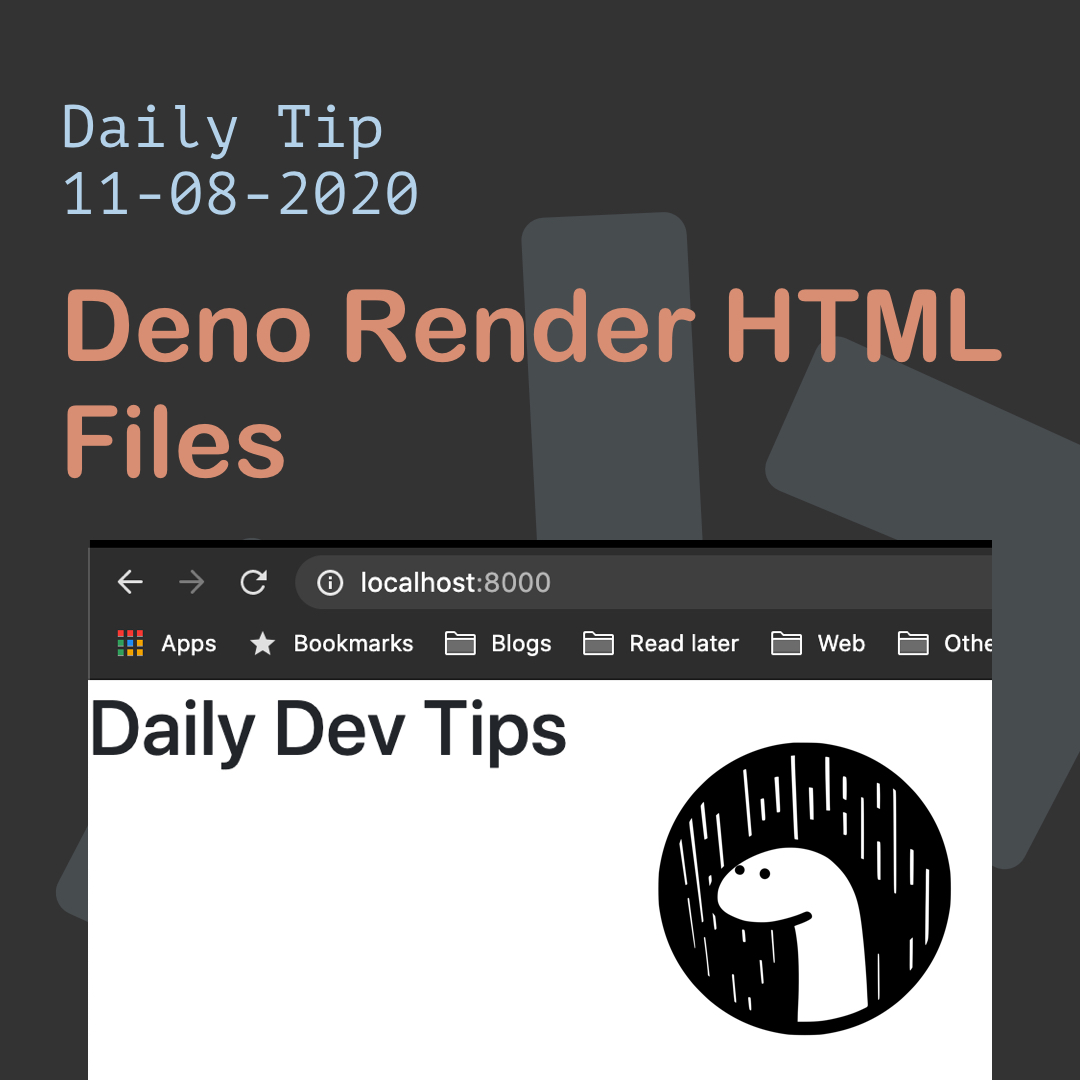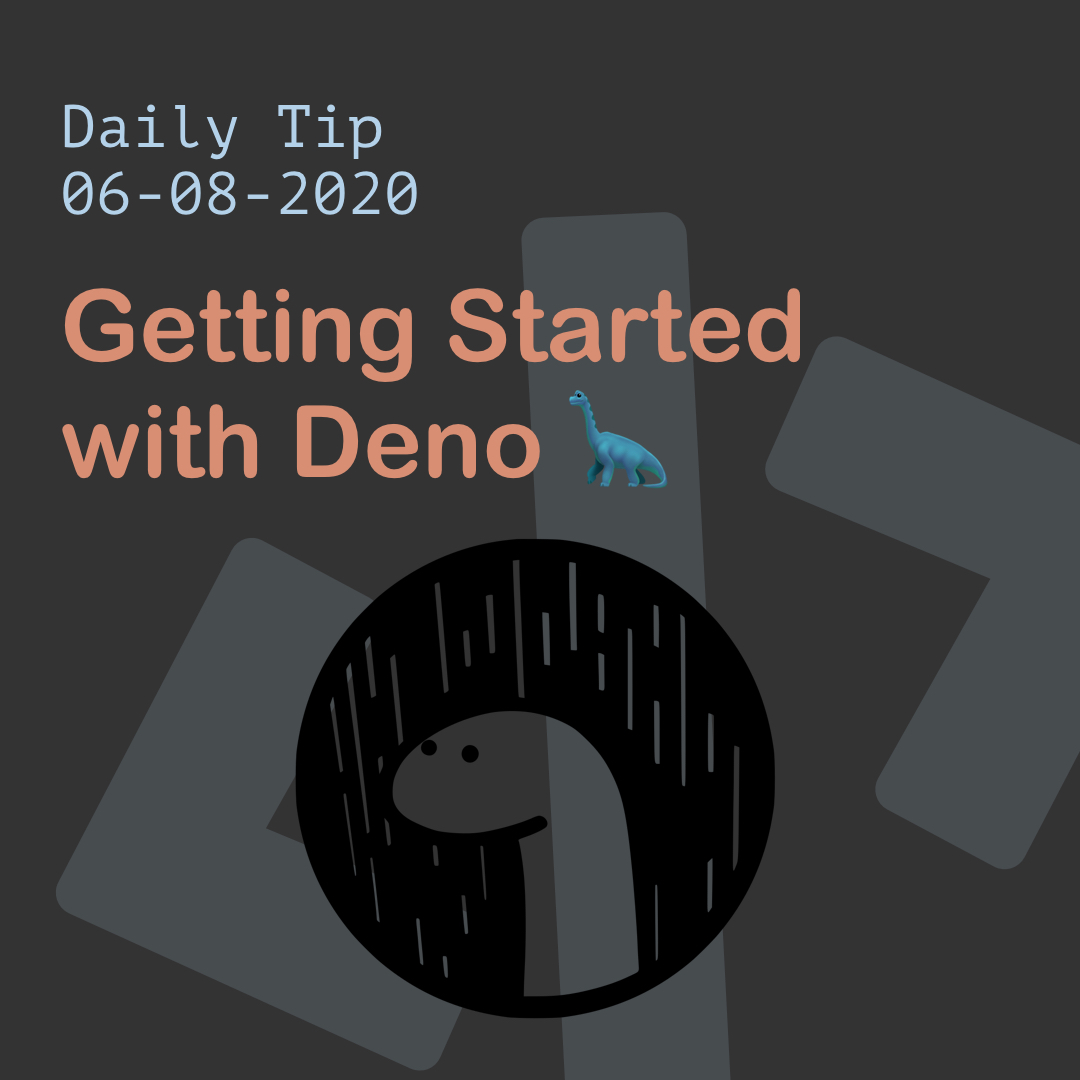Today I wanted to dive deeper into Deno and see how a fundamental file API would look. To get a better feel for the Deno.
We are going to build a Pokémon API; We'll be able to do the following actions:
- Retrieve a list of all our Pokémon
- Catch a new Pokémon
- Level up a Pokémon
- Release a Pokémon back to the wild
Please note this uses local storage and is not connected to a Database!
Deno API
We will be using the oak module (see the Pokémon reference?) and import the Application and Router object:
import { Application, Router } from 'https://deno.land/x/oak/mod.ts';Next up, we start by defining our variables:
const env = Deno.env.toObject();
const PORT = env.PORT || 3000;
const HOST = env.HOST || '127.0.0.1';Now we have to start our Oak application and run it.
// Define our router
const router = new Router();
// Define all our routes
router
.get('/pokemon', getPokemons)
.get('/pokemon/:name', getPokemon)
.post('/pokemon', catchPokemon)
.put('/pokemon/:name', levelUpPokemon)
.delete('/pokemon/:name', releasePokemon);
// Define our application
const app = new Application();
// Tell the application to use our defined routes
app.use(router.routes());
// We do have to allow all methods since Deno is a secure environment
app.use(router.allowedMethods());
// And we'll start our app on the defined port and address
await app.listen(`${HOST}:${PORT}`);That's our setup, but we now have to go and define all methods!
Deno Declaring our Interface
Before defining our methods, we must declare our Pokémon interface and basic Pokémons.
interface Pokemon {
name: string;
level: number;
}
let pokemons: Array<Pokemon> = [
{
name: 'Pikachu',
level: 10,
},
{
name: 'Eevee',
level: 50,
},
{
name: 'Snorlax',
level: 20,
},
];Extraordinary now, we can start and build our methods. Let's start by making our get function:
Deno Getting All Pokémon
GET: /pokemon
export const getPokemons = ({ response }: { response: any }) => {
response.body = pokemons;
};Easy as that, on the request, we return the response of our Pokemon, and it will look like this:

Deno Get Specific Pokémon
Ok, but what if we want to get one specific Pokémon based on their name?
GET: /pokemon/Pikachu
export const getPokemon = ({
params,
response,
}: {
params: {
name: string,
},
response: any,
}) => {
const pokemon = pokemons.filter((pokemon) => pokemon.name === params.name);
if (pokemon.length) {
response.status = 200;
response.body = pokemon[0];
return;
}
response.status = 400;
response.body = { msg: `Cannot find pokemon ${params.name}` };
};Here we are listing to the params name and filtering our Pokémons array. If none is found, we will return that we can't find the Pokémon.

Deno Catch a Pokémon
But we are proper Pokémasters, and we want to catch a Charizard!
POST: /pokemon
export const catchPokemon = async ({
request,
response,
}: {
request: any,
response: any,
}) => {
const body = await request.body();
const { name, level }: { name: string, level: number } = body.value;
pokemons.push({
name: name,
level: level,
});
response.body = { msg: 'OK' };
response.status = 200;
};We will post the name and level of the Pokémon to add it to our local storage.

Deno Level Up a Pokémon
Of course, we are perfect trainers, and our Eevee will level up!
PUT: /pokemon/Eevee
export const levelUpPokemon = async ({
params,
request,
response,
}: {
params: {
name: string,
},
request: any,
response: any,
}) => {
const temp = pokemons.filter((pokemon) => pokemon.name === params.name);
const body = await request.body();
const { level }: { level: number } = body.value;
if (temp.length) {
temp[0].level = level;
response.status = 200;
response.body = { msg: 'OK' };
return;
}
response.status = 400;
response.body = { msg: `Cannot find pokemon ${params.name}` };
};
Deno Releasing a Pokémon
There comes a time when you must let go of some Pokémon to release them back in the wild.
DELETE /pokemon/snorlax
export const releasePokemon = ({
params,
response,
}: {
params: {
name: string,
},
response: any,
}) => {
const lengthBefore = pokemons.length;
pokemons = pokemons.filter((pokemon) => pokemon.name !== params.name);
if (pokemons.length === lengthBefore) {
response.status = 400;
response.body = { msg: `Cannot find pokemon ${params.name}` };
return;
}
response.body = { msg: 'OK' };
response.status = 200;
};
I hope you found this helpful tutorial! You can find this project on GitHub.
Thank you for reading, and let's connect!
Thank you for reading my blog. Feel free to subscribe to my email newsletter and connect on Facebook or Twitter

